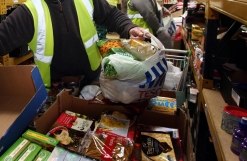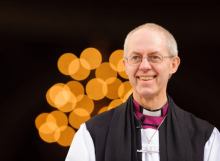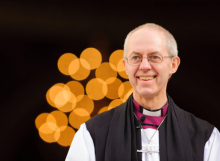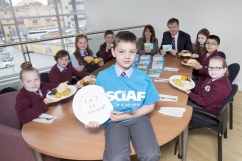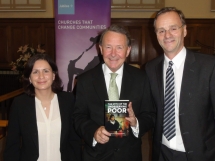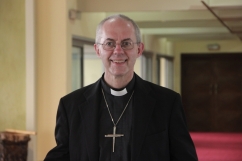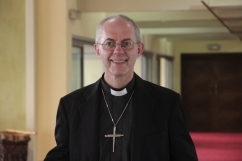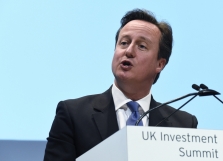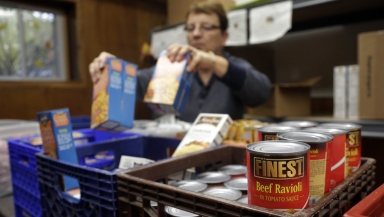
The number of people using food banks has risen by nearly 40 per cent in spite of evidence that an economic recovery is taking place, according to research today.
Nearly half a million people needed to be given three days' food in the six months to September this year, according to the report from the Trussell Trust, the charity that runs a network of more than 400 foodbanks in the UK.
This was an increase of 38 per cent on the same period last year.
Although difficulties around social security payments remain the top cause of foodbank use, low income is emerging as a growing problem, the trust reports.
The 492,641 people given three days' food and support included 176,565 children.
Benefit delays accounted for 30 per cent of referrals, and benefit changes 15 per cent. The trust reports that 22 per cent of those helped were referred because of low income, a rise from 16 per cent last year. This means that 51,000 more people were referred to a foodbank due to low income.
David McAuley, the trust's chief executive, said: "While the rate of new foodbanks opening has slowed dramatically, we're continuing to see a significant increase in numbers helped by foodbanks. Substantial numbers are needing help because of problems with the social security system but what's new is that we're also seeing a marked rise in numbers of people coming to us with 'low income' as the primary cause of their crisis.
"Incomes for the poorest have not been increasing in line with inflation and many, whether in low paid work or on welfare, are not yet seeing the benefits of economic recovery. Instead, they are living on a financial knife edge where one small change in circumstances or a life shock can force them into a crisis where they cannot afford to eat."
The charity is working with savings expert Martin Lewis to pilot placing financial advisers in foodbanks to help people managing extremely low incomes. Some foodbanks are also operating alongside credit union advisers in churches under three pilot schemes being rolled out under the Church Credit Champions Network in Southwark, London and Liverpool.
Mr McAuley said: "To reduce food poverty in the UK long term, we need policy makers across the political spectrum to truly understand what life on the breadline is like."
The latest Trussell Trust statistics on foodbank use follow on from the newly released Emergency Use Only report published by Oxfam, the Trussell Trust, the Church of England and Church Poverty Action.
This report shows for the first time how easily a crisis or life shock in the UK can escalate into hunger, housing loss and debt for those on low incomes. It corroborates Trussell Trust data showing that problems with social security are the highest single cause of foodbank use.
Trussell Trust chairman, Chris Mould said: "Foodbank use is not rising because people are taking advantage of free food, it's rising because more people are facing situations where they cannot afford to eat. Foodbank use is a last resort when other coping strategies have been exhausted. People speak of the shame and embarrassment that they feel before visiting a foodbank, and the courage it took to walk through the door. The fact that almost 500,000 people have found themselves in this situation in just six months should be deeply concerning to our nation. The qualitative evidence and personal stories in Emergency Use Only combined with the Trussell Trust's latest figures should leave no one in any doubt that UK hunger is real, distressing and a problem that continues to demand urgent attention."










